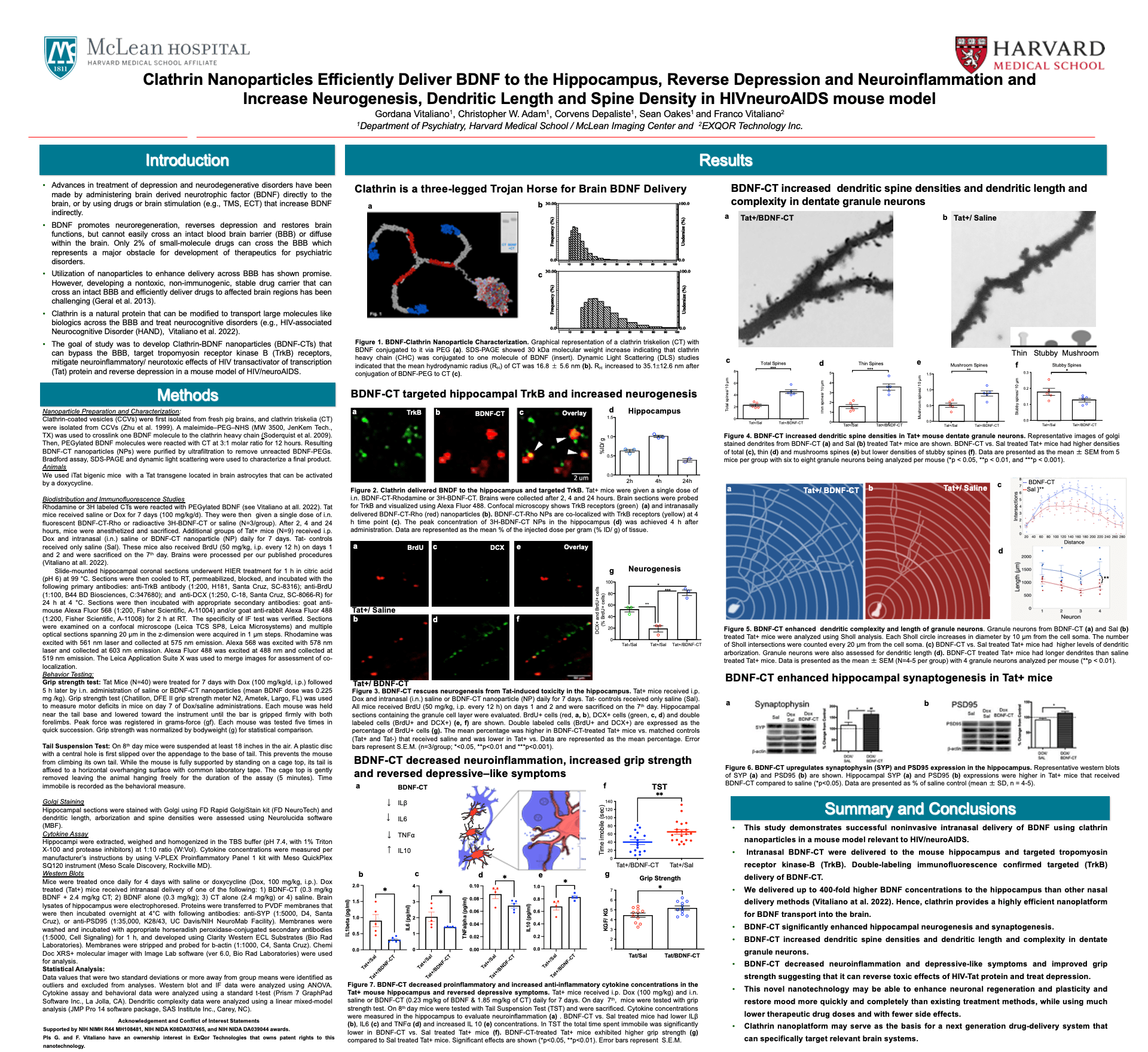Scientific Abstract
Background: Advances in treatment of depression and neurodegenerative disorders have been made by administering BDNF directly to the brain, or by using drugs or brain stimulation (e.g., TMS, ECT) that increase BDNF. BDNF reverses depression and promotes neuroregeneration but cannot easily cross a blood-brain barrier (BBB). We delivered up to 400-fold higher CNS BDNF concentrations with Clathrin-nanoparticles (BC-NPs) than other delivery methods (Vitaliano, 2022). Our goal was to decrease neurotoxic/neuroinflammatory effects of HIV/transactivator of transcription (Tat) protein and reverse depression in Tat+ mice.
Methods: iTat mice (n=40) were treated daily for 7 days with doxycycline (100mg/kg/d i.p.) that induces Tat expression (Tat+). Concurrently, animals received intranasally either BC-NPs (0.3mg/kg of BDNF) or saline (40 µl). Subsequently,Tat+ mice were tested with Tail Suspension (TS) and Grip strength tests. Hippocampal sections were stained with Golgi, and dendritic length, arborization and spine densities were assessed. Doublecortin (DCX) positive cells were counted, and cytokine concentrations were measured.
Results: In BC-NP vs. saline treated Tat+ mice, hippocampal granule neurons exhibited significantly higher dendritic length (F(1,9.3)=11.131, P=0.0083) and arborization (F(1,7.9)=18.024, P=0.0029). BC-NPs significantly increased thin (P=0.0004), mushroom (P=0.0042) and total (P=0.0001) spine densities, and DCX+ cell densities (P=0.049). BC-NPs reversed Tat-induced neuroinflammation by significantly decreasing hippocampal concentrations of proinflammatory cytokines (TNFα P=0.0247, IL1β P=0.0185, and IL6 P=0.0472, and by increasing levels of anti-inflammatory IL10 cytokine P=0.0277). In BC-NP vs. saline treated Tat+ mice, TS time spent immobile was significantly decreased (P=0.0023) and grip strength was increased (P=0.0105).
Conclusions: BC-NPs bypassed the BBB, increased hippocampal neurogenesis, spine density, dendritic length and arborization, and reversed depression and neuroinflammation in HIV/neuroAIDS mouse model. Clathrin-nanotechnology may be able to enhance neuronal regeneration and plasticity and restore mood quickly and more efficiently than existing treatment methods.
Search posters

